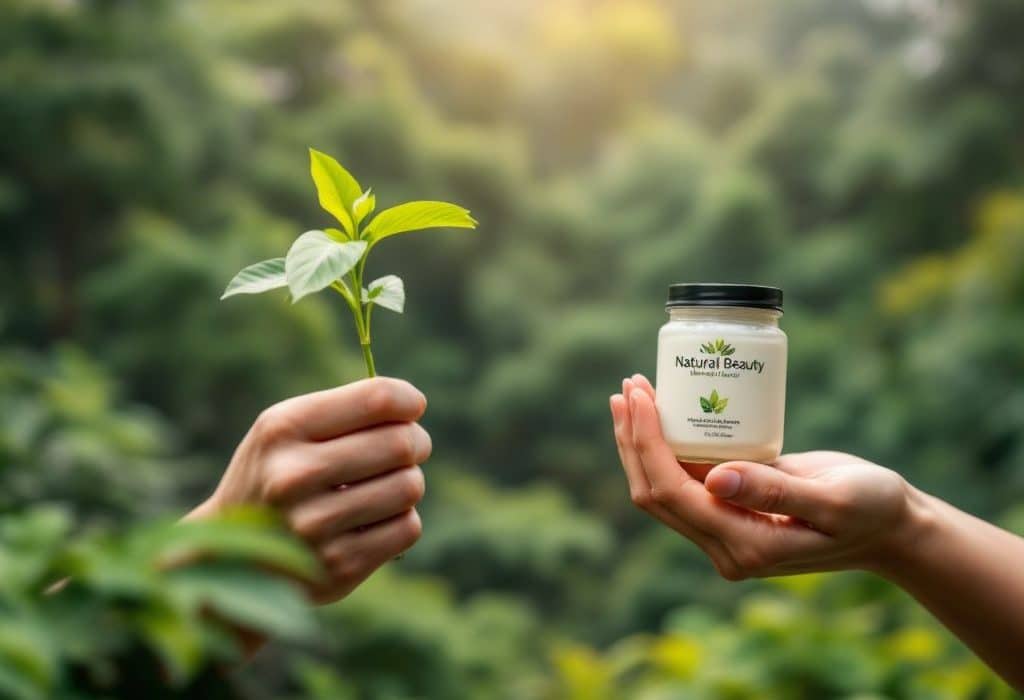In recent years, sustainable beauty has evolved from a niche interest into a mainstream consumer expectation. As an expert in sustainable beauty and eco-friendly cosmetics, my goal is to guide you through understanding the complex science of sustainability within the beauty industry. A primary aspect to consider when evaluating sustainable beauty products is the environmental impact of plant-based ingredients, which often centers around the ways in which they are sourced, harvested, and manufactured.
<strong>Plant Environmental Impact and Misconceptions
One prevailing misconception is that all plant-based ingredients are inherently sustainable. This is not always the case. For instance, the cultivation of crops such as palm oil has been linked to deforestation and biodiversity loss. It’s crucial to examine the source of ingredients and the practices used in their production. Certifications like the Roundtable on Sustainable Palm Oil (RSPO) play an essential role in ensuring more sustainable cultivation practices.
Furthermore, the use of certain essential oils, while natural, can also create environmental strain if not harvested responsibly. Lavender and sandalwood, for example, require significant land and water resources. Thus, products certified under programs like Fair for Life or Soil Association Organic provide assurance that sustainable and ethical practices are being adhered to throughout the supply chain.

Ingredients Sourcing
The ingredients’ sourcing process is another cornerstone of sustainable beauty. When selecting products, look for those that boast certifications like COSMOS Organic or EcoCert, which signify adherence to rigorous sustainability standards in ingredient management. For example, shea butter often contains fair trade certification, ensuring that ethical practices are followed that support economic sustainability in local communities from which these raw materials are sourced.
Sustainable Practicesstrong>
Sustainable manufacturing encompasses ethical labor practices, waste management, and energy use. Brands like Aveda and Lush lead in integrating sustainable practices by using renewable energy sources in manufacturing facilities, implementing full product life-cycle assessments, and upcycling packing materials.

Eco-Friendly Product Recommendations
- RMS Beauty “Un” Cover-Up: This concealer provides a medium coverage option in recyclable packaging. RMS Beauty commits to non-GMO, soy-free, and gluten-free ingredients, validated by EcoCert.
- Tata Harper Nourishing Oil Cleanser: Known for its organic certification, this cleanser uses face oils that come from environmentally conscious farms. The company emphasizes sustainability in packaging by using recyclable glass for its products.
- Ethique Solid Shampoo Bars: These bars, free from plastic and sulfates, are an excellent sustainable alternative to traditional shampoo bottles. Their packaging is 100% compostable and each bar conserves about 750 ml of water usage compared to liquid shampoos.
Green Beauty Standardsstrong>

Recognizing authentic practices is key. Beware of greenwashing, where brands label products as “natural” or “green” without substantial proof. Verifying claims through certifications and understanding the certifications’ standards—such as Leaping Bunny or the Vegan Society—can aid in making informed purchasing decisions that support genuine sustainability efforts in the beauty industry.
In conclusion, by prioritizing sustainably sourced ingredients, selecting evidence-backed certifications, and opting for products manufactured using eco-conscious practices, consumers can significantly contribute to the reduction of environmental impacts by choosing truly sustainable beauty products. This commitment leads not only to healthier ecosystems but also encourages more ethical corporate practices within the global beauty industry.
Frequently Asked Questions
What are the benefits of using plant-based moisturizers?
Plant-based moisturizers offer several benefits, including being gentle on the skin, hypoallergenic, and free from harsh chemicals like parabens, sulfates, and artificial fragrances. They are rich in nutrients and antioxidants that nourish and hydrate the skin, making them ideal for sensitive skin and effective in improving the overall health and appearance of the skin[2][4][5).
Which plant-based ingredients are best for sensitive skin?
For sensitive skin, ingredients like shea butter, aloe vera, and jojoba oil are highly recommended. Shea butter provides deep moisturization and is beneficial for conditions like eczema, aloe vera calms irritation and inflammation, and jojoba oil helps balance moisture levels and prevent dryness[2][4).
How do plant-based moisturizers support skin health?
Plant-based moisturizers support skin health by providing natural protection, enhancing the skin microbiome, and avoiding drying agents like sulfates. These products help maintain balanced hydration and support the skin’s natural oils, ensuring overall skin health and reducing the risk of allergic reactions and sensitivities[2][4][5).
Are plant-based moisturizers sustainable and eco-friendly?
Yes, plant-based moisturizers are generally more sustainable and eco-friendly compared to traditional skincare products. They are often made from natural, organic ingredients derived from renewable resources, and many brands are vegan, cruelty-free, and free of harmful chemicals and synthetic ingredients[4]).
References
